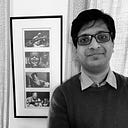Lakshmi and Saraswati as companions of Parvati in the songs of Muthuswami Dikshitar
As some of you know, I am occasionally fascinated by what I call the ‘lyrical cache’ of Muthuswami Dikshitar. In the service of the perfect alignment of melody, tala and lyric — the quest for poetry and prosody, he seems to intuitively and effortlessly be able to identify just the right words, with just the right number of syllables, with just the right sounds, in just the right order, with just the right conjugation, to have just the right effect.
Here is another small example. In several compositions on Parvathi, Lakshmi and Saraswathi make an appearance, as her close associates. She takes delight in their company. I’ve identified 14 such songs, listed below.
While the core of their relationship may be constant in these 14 songs, he articulates their relationship in 13 different ways. So we have:
Five different names for Lakshmi (Rama, Kamala, Lakshmi, Shri, Ma)
Five different names for Saraswati (Vani, Sharada, Bharati, Saraswati, Vagdevi)
Six basic types of relationships (to take care of, to worship, to praise, to be a companion and friend of, and to be understood by, to be the eyes of), expressed using
Eight different root verbs / nouns (sevita, nayana, sannuta, sakhi, pujita, vandita, sahite, vedini)
My personal favourite among are ‘vedini’ (Ma and Vani are fully understood by Parvathi — she knows them inside and out) and ‘sakhi’ — perhaps the simplest, most equal of all the articulations.
It’s also interesting that in some songs, other forms of Parvathi are referenced as separate entities who also interact with the subject of the song who is also Parvathi! For instance, Durga is mentioned as a separate entity in the song Gauri Girirajakumari and is Gauri is mentioned in the nottu swara sahitya Kamalasana Vandita.
I’ve created a playlist of eight of the 14 songs that I could find on Spotify:
Here are links to the remaining four songs on Youtube:
An extensive (~30 minute) exposition of Neelotpalambakaya Nirvana in Kannada Gowla by the Alathur Brothers:
Bhushany Kalayanaraman sings Neelotpalambikayai Namaste in the raga Kedara Gaula:
An old recording of TM Krishna singing Ishanadi Shivakara in the raga Sahana. At the beginning of the recording, he provides a brief exposition of the difference in treatment of the raga Sahana in the Govinda / Thyagaraja school versus in the Venkatamakhin / Dikshitar school.
And finally, Mahishasura Mardani by Anahita and Apoorva:
As always, a big thank you to whover is behind the Guruguha Vaibhavam blogpost for the meticulous listing of Dikshitar’s compositions, with lyrics and meaning.
Thanks for reading!
